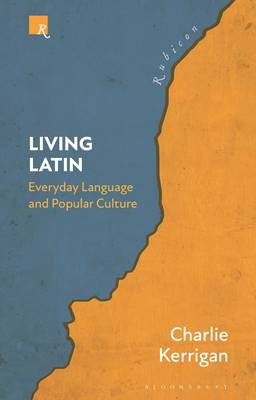
Bedankt voor het vertrouwen het afgelopen jaar! Om jou te bedanken bieden we GRATIS verzending (in België) aan op alles gedurende de hele maand januari.
- Afhalen na 1 uur in een winkel met voorraad
- In januari gratis thuislevering in België
- Ruim aanbod met 7 miljoen producten
Bedankt voor het vertrouwen het afgelopen jaar! Om jou te bedanken bieden we GRATIS verzending (in België) aan op alles gedurende de hele maand januari.
- Afhalen na 1 uur in een winkel met voorraad
- In januari gratis thuislevering in België
- Ruim aanbod met 7 miljoen producten
Zoeken
€ 115,45
+ 230 punten
Uitvoering
Omschrijving
What kind of language is Latin, and who is it for? Contrary to most accounts, this book tells the story of Latin as a language of ordinary people. Surveying the whole span of the language's history, it explores the evidence that exists for ordinary Latin around the Roman world, arguing that this material is just as worthy of readers' attention as the famous classics. Those classics are reassessed in the light of popular concerns, as works of art that evoke ancient, sustainable, and communal ways of living, encompassing broad and diverse traditions of readers through time.
And of course Latin lived on: this account revisits what happened to the language after the Roman empire, tracing its twin streams - intellectual lingua franca and a series of Romance languages - into the twenty-first century. What emerges is a human chain stretching back thousands of years and still in existence today, a story of workers and weavers, violets and roses, storytellers and musicians, a common and democratic archive of world history. Kerrigan's strong and attractive case for a new conception of Latin sends out a call to arms to reevaluate the place of Latin in history. On the one hand, an interesting and readable history of the language, on the other, this book sets out to provoke questions for readers, students, and teachers of Latin, as well as anyone interested in the ancient Mediterranean world. Latin was and should always be for all.Specificaties
Betrokkenen
- Auteur(s):
- Uitgeverij:
Inhoud
- Aantal bladzijden:
- 136
- Taal:
- Engels
- Reeks:
Eigenschappen
- Productcode (EAN):
- 9781350377028
- Verschijningsdatum:
- 8/02/2024
- Uitvoering:
- Hardcover
- Formaat:
- Genaaid
- Afmetingen:
- 140 mm x 216 mm
- Gewicht:
- 299 g

Alleen bij Standaard Boekhandel
+ 230 punten op je klantenkaart van Standaard Boekhandel
Beoordelingen
We publiceren alleen reviews die voldoen aan de voorwaarden voor reviews. Bekijk onze voorwaarden voor reviews.









